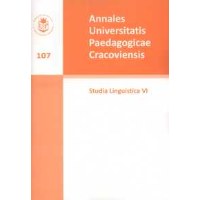Time Perspective and Self-Esteem: Negative Temporality Affects the Way We Judge Ourselves
Time Perspective and Self-Esteem: Negative Temporality Affects the Way We Judge Ourselves
Author(s): Victor Ortuño, Alejandro EcheverríaSubject(s): Psychology
Published by: Wydawnictwo Uniwersytetu Komisji Edukacji Narodowej w Krakowie
Keywords: time perspective; self-esteem; motivation; structural equation modelling
Summary/Abstract: Time Perspective is the process by which people categorize, archive and recover personaland social experiences through temporal frames (past, present, and future), influencingvarious aspects of human behaviour and cognition. It was proposed that it is related to selfesteem, though until now the main approach when exploring this relation was correlational.In this study, we explore a structural equation model of Time Perspective’s association withSelf-Esteem. The sample was composed of 474 undergraduate students with a mean age of 19years. The final model presented a high predictive power of Self-Esteem (R2= .39, p < .001) andgood fit indices (x2/df = 2.1, CFI = .94, GFI = .91, RMSEA = .05) with two temporal dimensionsentering the model: Past Negative (βSelf-Esteem.PastNegative= -.52, p < .001) and Future-Negative(βSelf-Esteem.FutureNegative= -.17, p < .001) showing that negative affects of time dimensions(rather than positive ones) are more related to Self-Esteem. Results are discussed in relationto Self-Esteem and TP literature.
Journal: Annales Universitatis Paedagogicae Cracoviensis. Studia Psychologica
- Issue Year: VI/2013
- Issue No: 1
- Page Range: 109-125
- Page Count: 17
- Language: English

